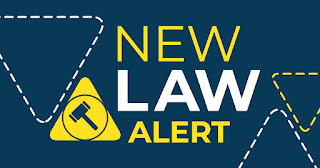Beginning May 25, 2020, litigants will finally be able to commence new actions. The acceptance of electronic filing for new non-essential matters represents the clearing of the the penultimate hurdle for the court system's remote operations. In effect, trials and hearings are the only civil court operations still on hold. Judge Marks May 20, 2020 memorandum can be found, HERE.
It is important to remember that this memorandum does not supersede the Governor's executive orders which restrict certain actions, such as residential evictions, which may still be barred.
 |









